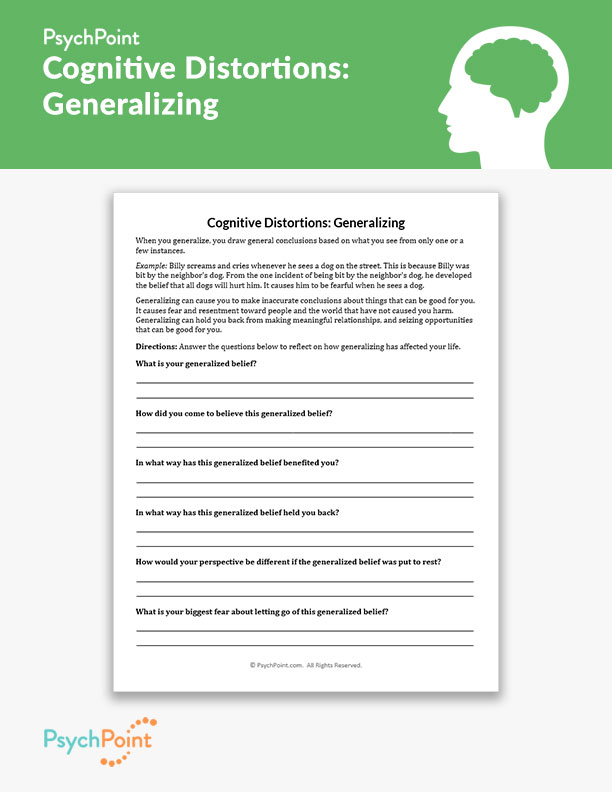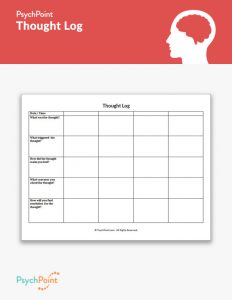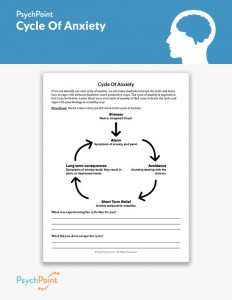Cognitive Distortions: Generalizing Worksheet
Worksheet updated on February 17th, 2022

An important skill to have when managing negative thoughts is learning how to identify cognitive distortions. A cognitive distortion is a pattern of unhealthy thinking. Identifying cognitive distortions is an important part of cognitive-behavioral therapy, which helps you learn how to challenge and rethink unhealthy thoughts.
One type of cognitive distortion is called generalizing. The term generalizing refers to the act of drawing conclusions about a population based on an isolated incident. Generalizing can cause a person to think in the negative. The negative thoughts can cause anxiety, sadness, and struggles with self-esteem. This is why it is important to know how to identify and challenge generalized thoughts.
About This Worksheet
This is the Cognitive Distortions: Generalizing worksheet. This worksheet provides a brief overview of what generalizing is, along with reflection questions on the client's patterns of the cognitive distortion. This worksheet is great for learning how to identify and manage generalized thoughts. It can be helpful for adolescents and adults who are in individual or group therapy.
Instructions
Use the worksheet to explain the meaning of generalizing. Provide the client with general examples, along with examples based on what the client has shared in the session. Allow the client to review the worksheet and answer the reflection questions.
When the client has completed the reflection questions, review the answers together. Provide reflection and insight where needed, and answer any questions that the client has about the process.







